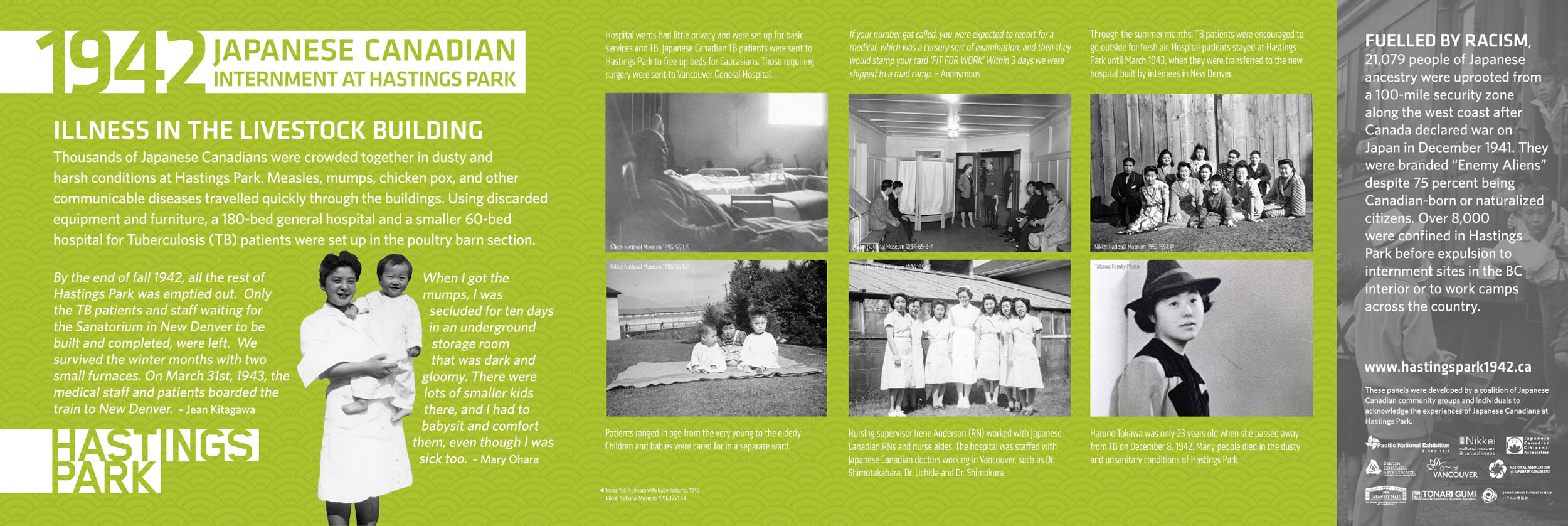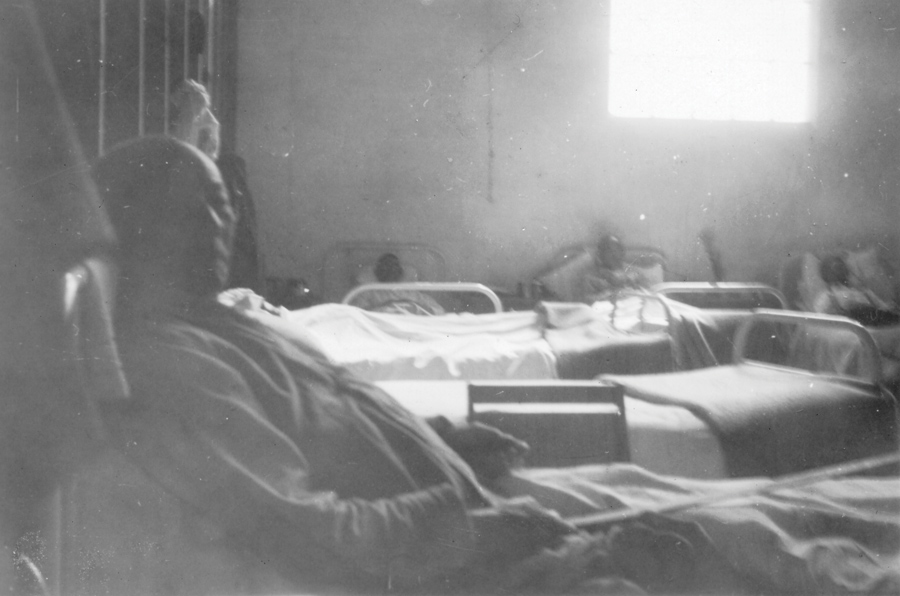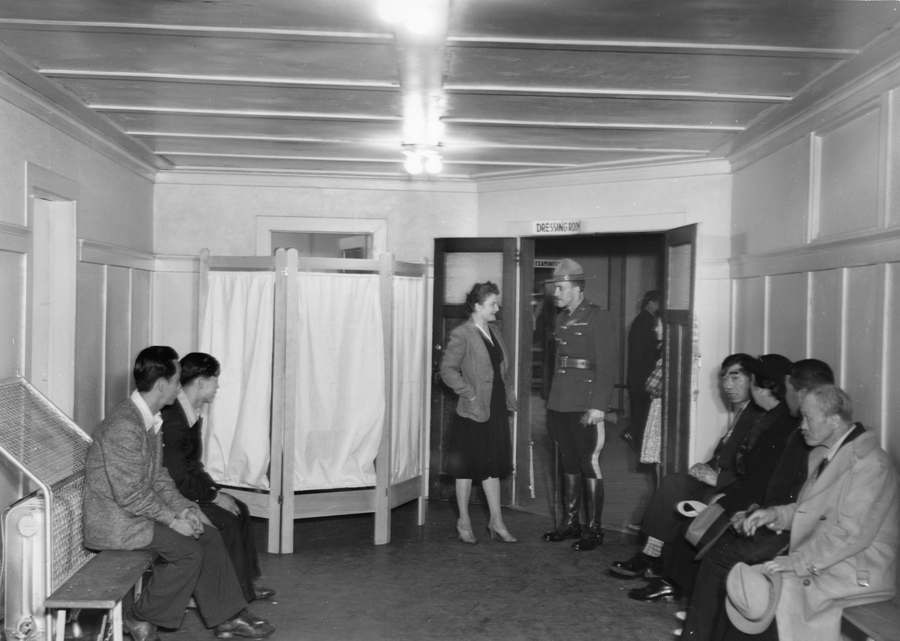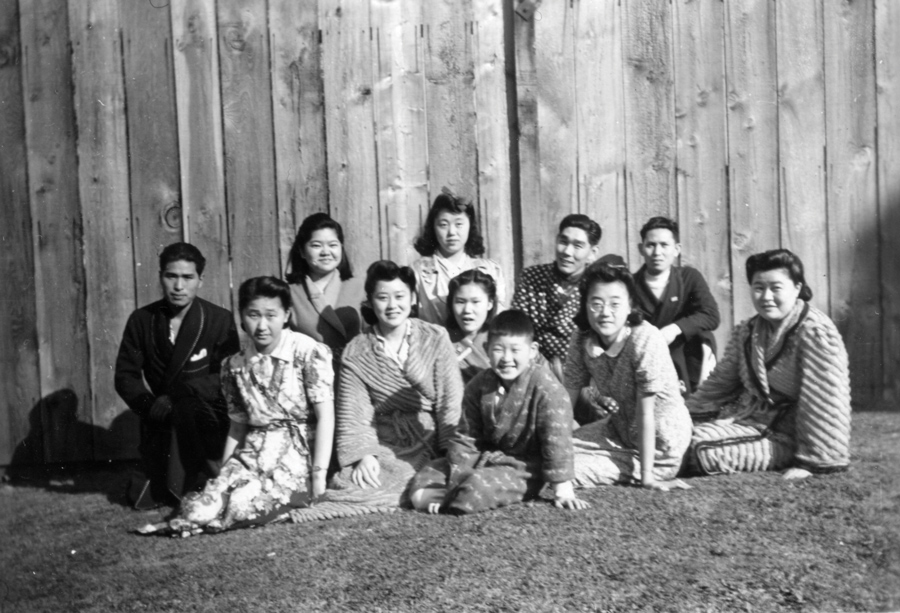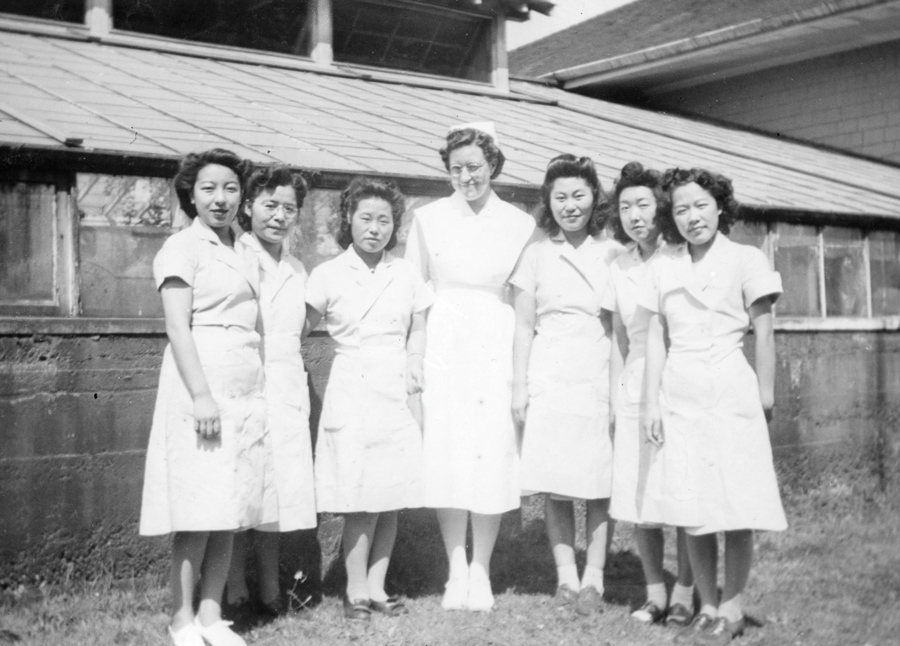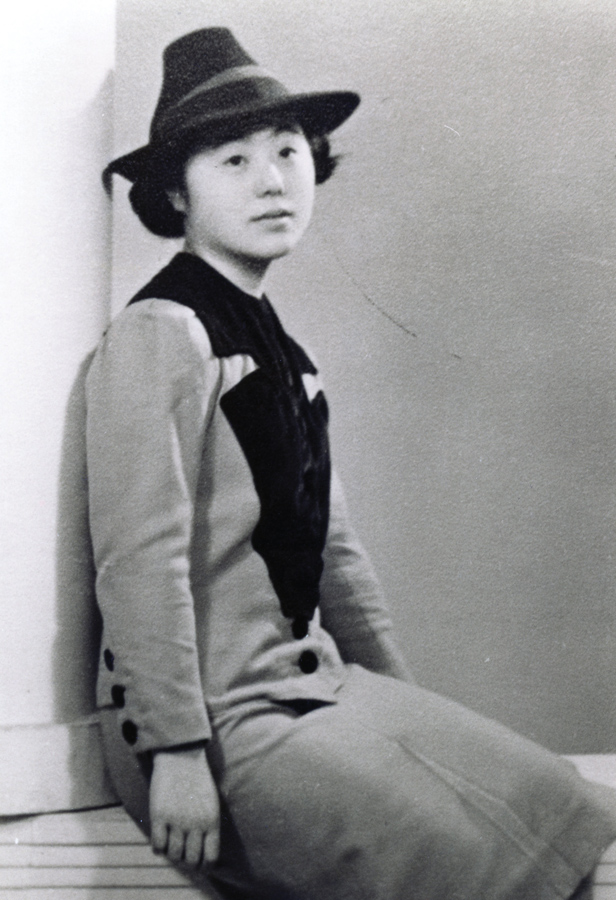Illness in the Livestock Building
Thousands of Japanese Canadians were crowded together in dusty and harsh conditions at Hastings Park. Measles, mumps, chicken pox, and other communicable diseases travelled quickly through the buildings. Using discarded equipment and furniture, a 180-bed general hospital and a smaller 60-bed hospital for Tuberculosis (TB) patients were set up in the poultry barn section.
By the end of fall 1942, all the rest of Hastings Park was emptied out. Only the TB patients and staff waiting for the Sanatorium in New Denver to be built and completed, were left. We survived the winter months with two small furnaces. On March 31st, 1943, the medical staff and patients boarded the train to New Denver. – Jean Kitagawa
When I got the mumps, I was secluded for ten days in an underground storage room that was dark and gloomy. There were lots of smaller kids there, and I had to babysit and comfort them, even though I was sick too. – Mary Ohara
Hospital wards had little privacy and were set up for basic services and TB. Japanese Canadian TB patients were sent to Hastings Park to free up beds for Caucasians. Those requiring surgery were sent to Vancouver General Hospital.
If your number got called, you were expected to report for a medical, which was a cursory sort of examination, and then they would stamp your card ‘FIT FOR WORK’. Within 3 days we were shipped to a road camp. – Anonymous
Through the summer months, TB patients were encouraged to go outside for fresh air. Hospital patients stayed at Hastings Park until March 1943, when they were transferred to the new hospital built by internees in New Denver.
Patients ranged in age from the very young to the elderly. Children and babies were cared for in a separate ward.
Nursing supervisor Irene Anderson (RN) worked with Japanese Canadian RNs and nurse aides. The hospital was staffed with Japanese Canadian doctors working in Vancouver, such as Dr. Shimotakahara, Dr. Uchida and Dr. Shimokura.

